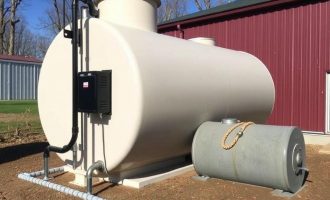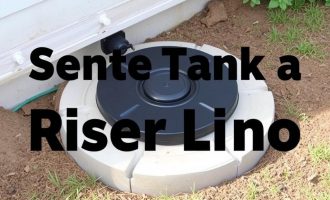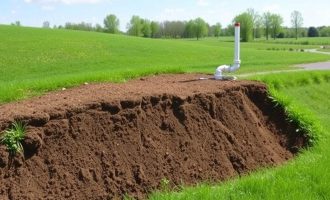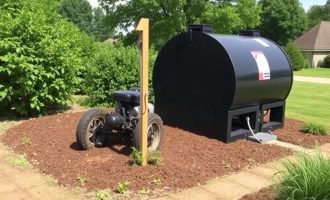As the cold months creep in and frost begins to settle on the ground, homeowners start to shift their focus toward winterizing their property. While you might be busy protecting your pipes and insulating windows, one crucial aspect often gets overlooked—your septic system. Winter care for your septic system isn’t just a good idea; it’s essential to avoid costly repairs, unpleasant backups, and system failures during the freezing season. In this article, we’ll explore everything you need to know about winter care for your septic system, providing practical advice, easy precautions, and insider tips to keep your system functioning smoothly through the coldest months.
Understanding how your septic system works and how winter conditions affect it is the first step toward proper maintenance. With frozen ground, slowed bacterial activity, and potential blockages caused by ice, septic systems face unique challenges in winter. Let’s dive into the best practices for winter septic system care and learn how small steps can go a long way in protecting this important home feature.
- Why Winter Care for Your Septic System Matters
- Key Challenges Facing Your Septic System in Winter
- 1. Freezing Pipes and Tank
- 2. Reduced Bacterial Activity
- 3. Frozen Drain Fields
- 4. Increased Water Usage
- Practical Tips for Winter Care for Your Septic System
- 1. Insulate Exposed Components
- 2. Maintain a Thick Snow Cover or Mulch Over the Drain Field
- 3. Limit Water Usage
- 4. Avoid Using Harsh Chemicals
- 5. Schedule a Septic System Inspection
- 6. Use Tank Additives with Caution
- 7. Keep Driveways and Heavy Vehicles Off the Drain Field
- How to Recognize Septic System Problems in Winter
- Common Warning Signs:
- Seasonal Maintenance Schedule: Winter Care Checklist
- Understanding the Science Behind Septic Systems and Winter
- Frequently Asked Questions About Winter Care for Your Septic System
- Can I use antifreeze in my septic system to prevent freezing?
- How often should I pump my septic tank before winter?
- Will running water continuously prevent freezing?
- What should I do if my septic tank freezes?
- Is snow really effective in insulating my septic system?
- Summary of Dos and Don’ts for Winter Septic System Care
- Innovative Winter Monitoring Solutions
- Conclusion
Why Winter Care for Your Septic System Matters
Your septic system is essentially an underground wastewater treatment system that relies on natural bacterial processes and soil filtration to break down waste. During warmer months, this system operates efficiently. However, as temperatures drop, the effects of freezing cold weather can disrupt these processes. Ground freezing around your septic tank and drain field can cause slow drainage or even complete system shutdown. The bacterial activity that helps decompose solids slows down or temporarily stops, leading to buildup inside the tank.
Besides, frozen pipes and soil can create pressure points and cracks, risking leaks or blockages when thawing begins. Dealing with septic backups or frozen pipes inside your home during winter can be inconvenient and expensive. This is why winter care for your septic system is not just a seasonal chore but a necessary investment in your home’s long-term health.
Key Challenges Facing Your Septic System in Winter
Before jumping into solutions, it’s important to grasp the common challenges your septic system may encounter during winter months.
1. Freezing Pipes and Tank
Septic tank lids and outlet pipes near the surface are susceptible to freezing. If snow cover is light or absent, cold air can penetrate and freeze the components, leading to blockages. Frozen pipes can cause wastewater to back up into your home, creating sanitation hazards.
2. Reduced Bacterial Activity
The treatment of sewage depends on bacteria that break down solids. Cold temperatures slow down bacterial metabolism, reducing system effectiveness. This reduction can cause solids to build up more rapidly, increasing the need for pumping.
3. Frozen Drain Fields
Drain fields rely on soil to absorb and filter wastewater. However, frozen soil can block water absorption, causing backups into the septic tank or home plumbing.
4. Increased Water Usage
During winter, many households experience increased indoor water usage, whether from guests, baths, or clothes washing. Elevated water volume coupled with compromised system function can strain the septic system further.
Practical Tips for Winter Care for Your Septic System
Now that we understand the possible hurdles, let’s go through the top practical tips to protect your septic system during the winter months. These measures are easy to follow and can save you from costly repairs.
1. Insulate Exposed Components
Start by insulating any exposed septic tank lids and pipes. You can use straw, mulch, insulated blankets, or foam covers to create a protective barrier against freezing air. Make sure the insulation is dry and does not retain moisture, which can freeze and cause damage.
2. Maintain a Thick Snow Cover or Mulch Over the Drain Field
Snow acts as a natural insulator, protecting your system from extreme cold. Try not to shovel snow off the drain field unless absolutely necessary. If the snow is scant, add a layer of mulch or hay to retain warmth in the soil.
3. Limit Water Usage
Be mindful of how much water you use during the winter. Avoid doing multiple loads of laundry in quick succession, fix leaks promptly, and reduce unnecessary water usage to prevent overwhelming your septic system.
4. Avoid Using Harsh Chemicals
Chemical drain cleaners, antifreeze, and antibacterial soaps can kill the beneficial bacteria in your septic system. Avoid flushing or pouring such substances into your system, especially during winter when bacterial activity is already compromised.
5. Schedule a Septic System Inspection
Before winter fully sets in, have a professional inspect your septic system. They can check for leaks, pump out solids if necessary, and ensure everything is sealed properly. Preventive maintenance is much easier and less expensive than emergency repairs.
6. Use Tank Additives with Caution
Some homeowners turn to septic tank additives claiming to boost bacterial activity. While some products may help, it’s best to consult a septic professional before using them, especially during winter.
7. Keep Driveways and Heavy Vehicles Off the Drain Field
Avoid parking cars, trucks, or heavy machinery on the drain field, particularly in winter. The weight compacts the frozen soil, reducing its ability to absorb wastewater and potentially causing damage.
How to Recognize Septic System Problems in Winter
Even with good winter care, problems can arise. Knowing the warning signs will help you act quickly and prevent bigger issues.
Common Warning Signs:
- Slow drains in sinks, tubs, or toilets
- Gurgling sounds in plumbing fixtures
- Bright green, soggy areas over the drain field despite winter conditions
- Unpleasant sewage odors indoors or near the septic tank
- Backup of wastewater into household plumbing
If you notice any of these signs, call a licensed septic service professional immediately. Early intervention can save you from extensive damage and costly repairs.
Seasonal Maintenance Schedule: Winter Care Checklist
c4ae6f8cf46be6267bcc0e850e7460d5.jpg
To make winter care for your septic system manageable, follow this simple seasonal checklist.
| Task | When to Do It | Purpose |
|---|---|---|
| Inspect & Pump Septic Tank | Late Fall (before first freeze) | Remove buildup and prevent overflow |
| Insulate Tank Lid and Pipes | Before winter | Prevent freezing and damage |
| Apply Mulch or Straw Over Drain Field | Early Winter | Insulate soil for waste absorption |
| Monitor Water Usage | Throughout winter | Reduce stress on the system |
| Watch for Warning Signs | Throughout winter | Early detection of problems |
Understanding the Science Behind Septic Systems and Winter
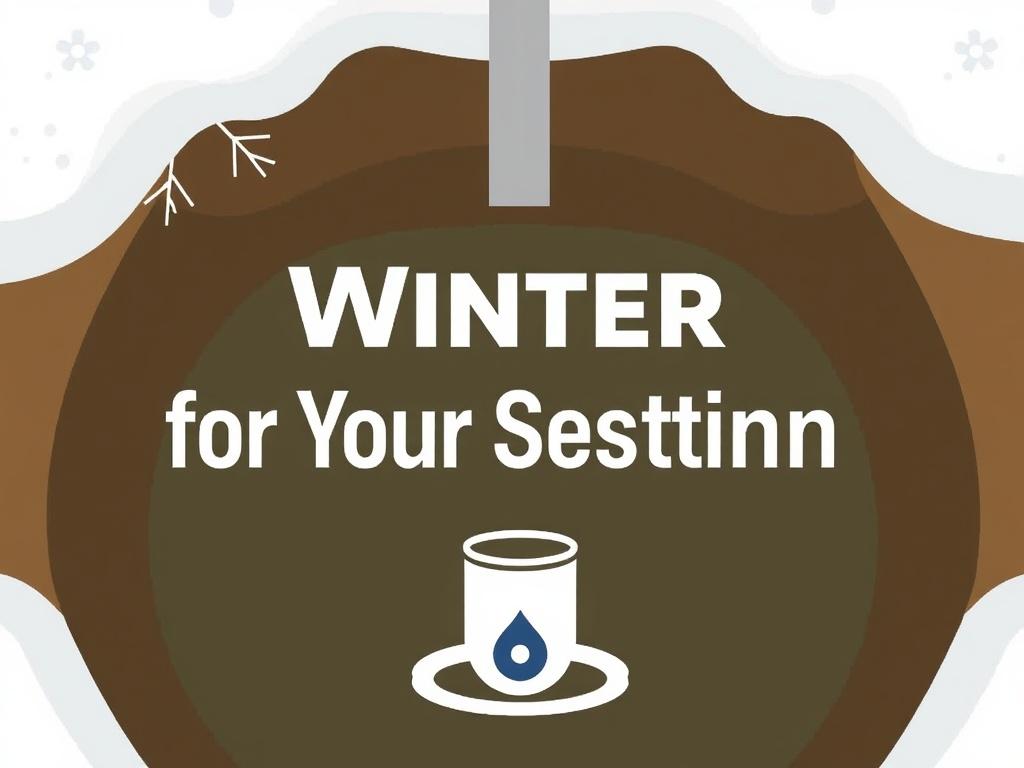
If you love to understand the “why” behind actions, knowing the science of how cold weather influences septic systems can deepen your awareness. A septic system depends heavily on aerobic and anaerobic bacteria breaking down organic waste. These bacteria thrive between 70°F and 95°F but slow significantly when temperatures dip below 50°F.
During winter, as the soil freezes, the insulation the earth provides decreases, and the bacterial activity slows down. This reduction in bacteria action causes organic solids to settle and accumulate faster inside the tank. The frozen soil in the drain field impacts its permeability, meaning effluent cannot percolate away rapidly.
Additionally, pipes carrying wastewater can freeze because stagnant water cools and solidifies when temperatures drop, especially if the flow is limited. By insulating pipes and lids and ensuring snow or mulch covers the ground above the system, you help maintain a favorable environment for bacterial activity and prevent freezing.
Frequently Asked Questions About Winter Care for Your Septic System
Can I use antifreeze in my septic system to prevent freezing?
While some people consider using antifreeze, it’s generally not recommended. Antifreeze can be harmful to the bacteria that treat wastewater and may contaminate groundwater. Stick to insulating your tank and pipes instead.
How often should I pump my septic tank before winter?
Typically, septic tanks require pumping every 3 to 5 years, but if you live in an area with harsh winters, scheduling a pump out late in the fall can prevent sludge buildup before freezing.
Will running water continuously prevent freezing?
Running water slowly can help prevent pipe freezing, but continuous running increases water volume going into the septic system, which could burden it. Aim for moderation and insulation as your primary defense.
What should I do if my septic tank freezes?
Never try to thaw a frozen septic tank yourself using open flames or electric heaters. Contact a septic professional immediately, as improper thawing can cause damage or unsafe conditions.
Is snow really effective in insulating my septic system?
Yes, snow acts as an excellent insulator and can help protect your septic system from extreme cold. That’s why it’s best to leave a thick snow cover on the drain field and tank lids.
Summary of Dos and Don’ts for Winter Septic System Care
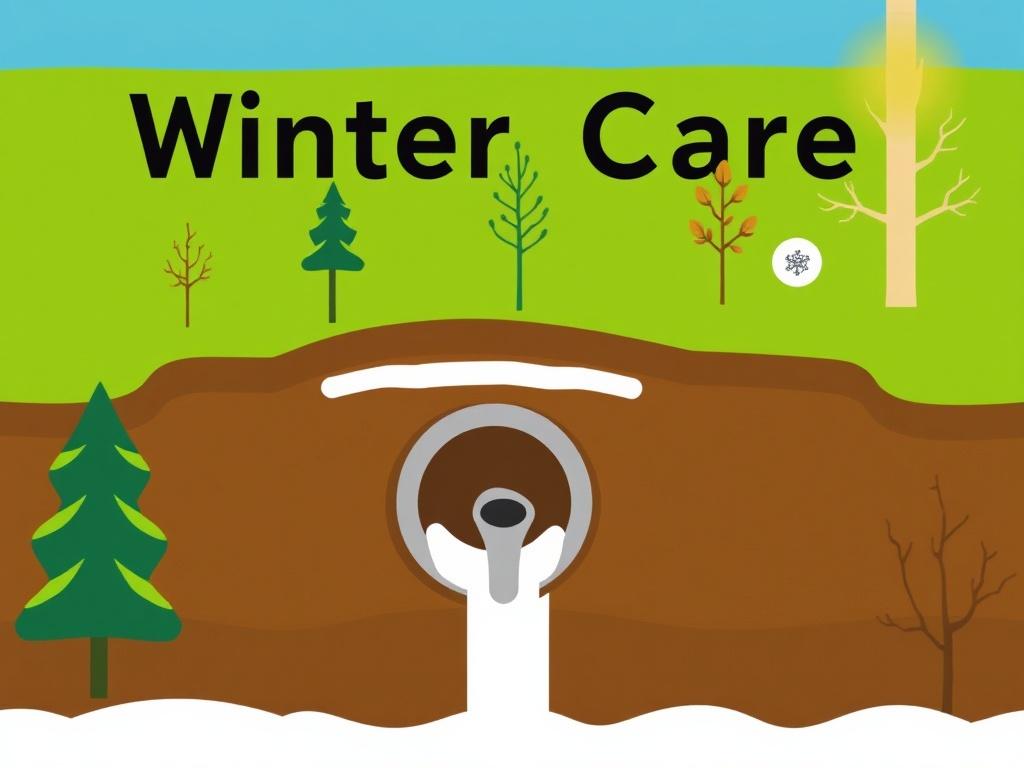
| Dos | Don’ts |
|---|---|
| Insulate exposed pipes and tank lids | Don’t flush chemicals or antifreeze into the system |
| Monitor water usage and reduce waste | Avoid parking vehicles on the drain field |
| Schedule timely septic tank pumping | Don’t remove snow from drain field unnecessarily |
| Use mulch or straw to protect soil | Don’t attempt to thaw frozen parts yourself |
| Watch for signs of problems and call professionals | Avoid using harsh antibacterial cleaners |
Innovative Winter Monitoring Solutions
Recent advancements in home technology have made winter care for your septic system even easier. Smart septic system monitors can detect changes in water level, temperature, and flow in real-time via your smartphone. These devices alert homeowners before minor issues become emergencies, especially important in winter when frozen conditions can mask problems until they worsen.
Installing such monitoring technologies provides peace of mind and ensures timely maintenance without needing constant manual checks.
Conclusion
Winter care for your septic system is a vital component of home maintenance that ensures your wastewater treatment continues smoothly through cold weather. By understanding how freezing temperatures impact your system, insulating vulnerable parts, managing water use wisely, and watching for warning signs, you can prevent inconvenient and costly failures. Remember, proactive septic system care during winter not only protects your investment but also keeps your household safe and comfortable throughout the season. With a bit of attention and simple preventive measures, you’ll set your septic system up for successful performance year after year, regardless of how harsh the winter gets.
Помогла вам статья?


